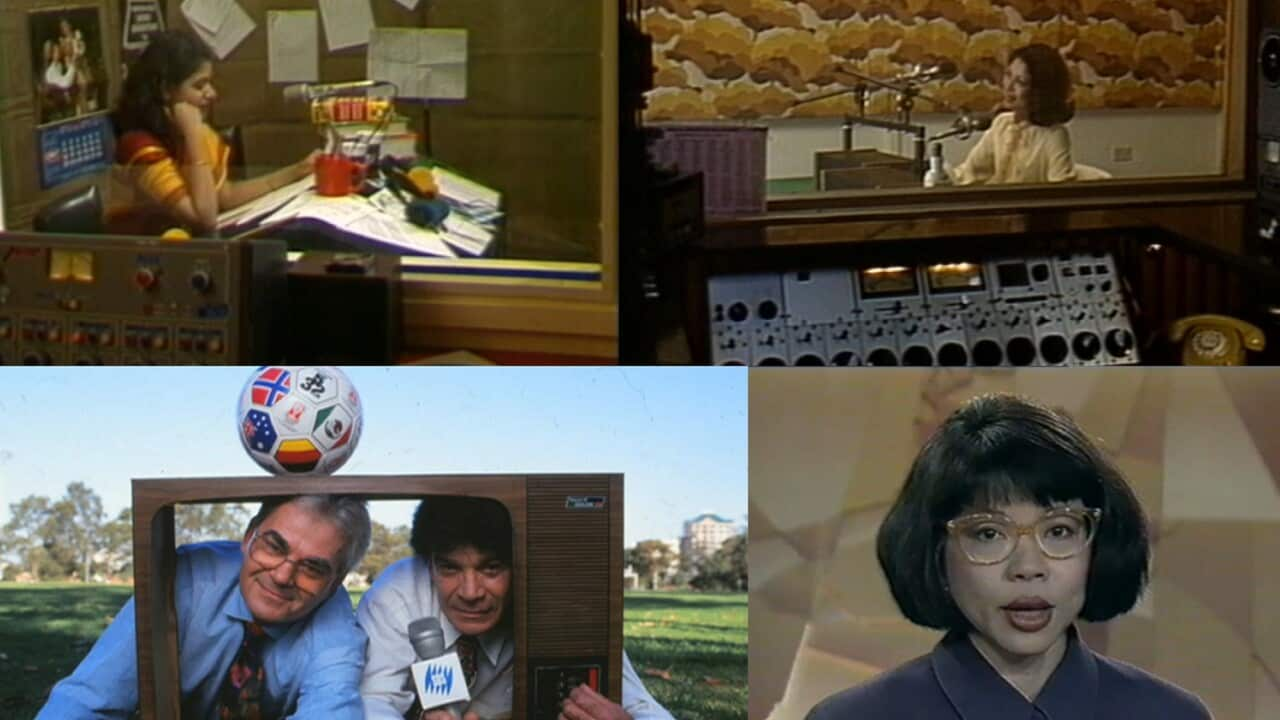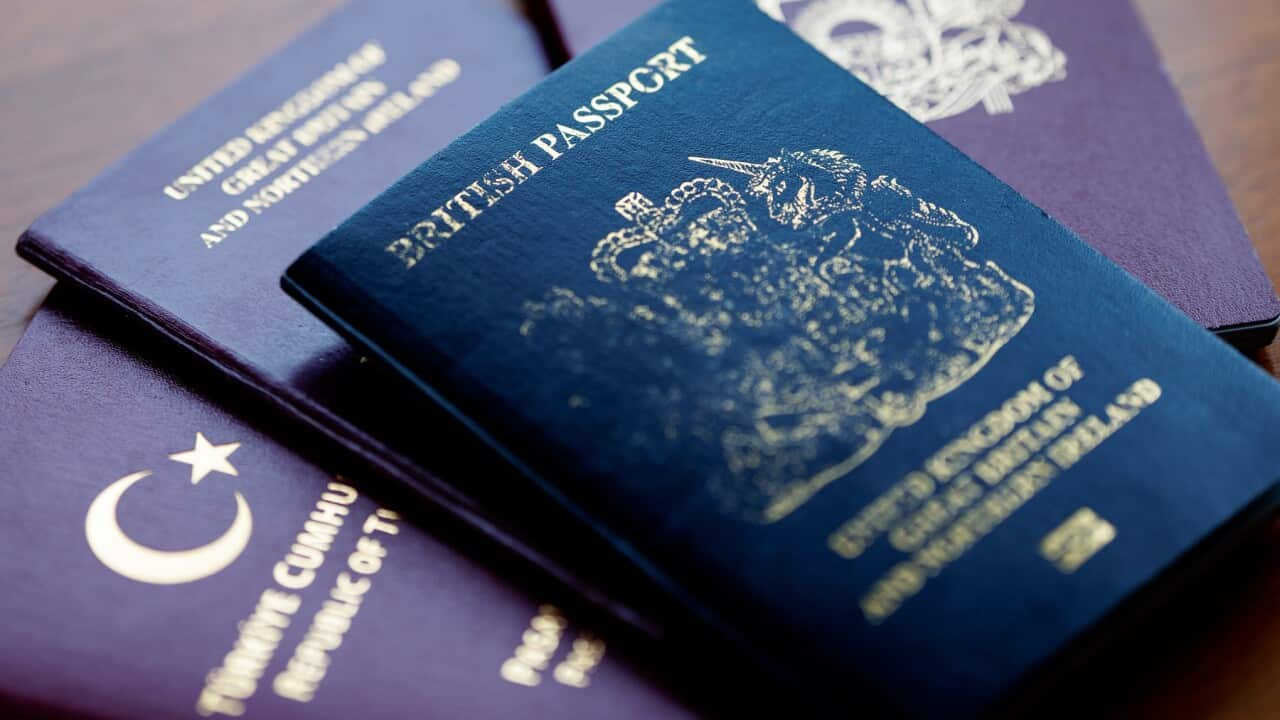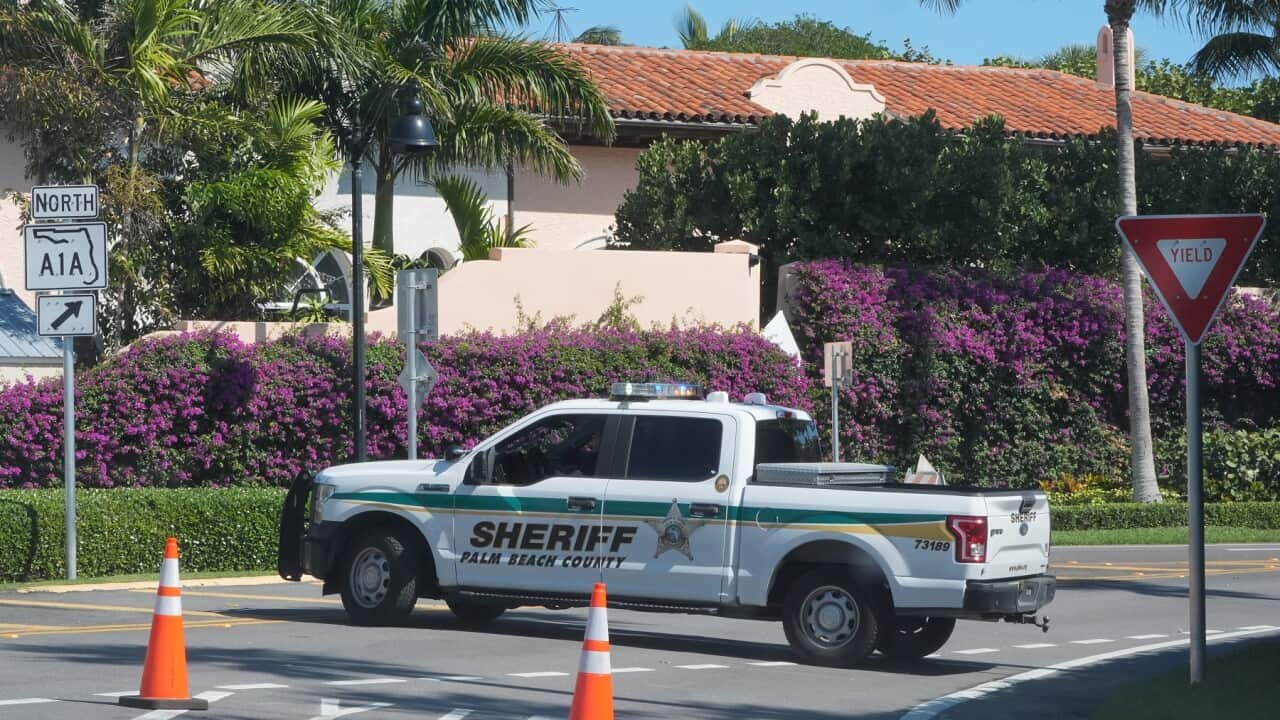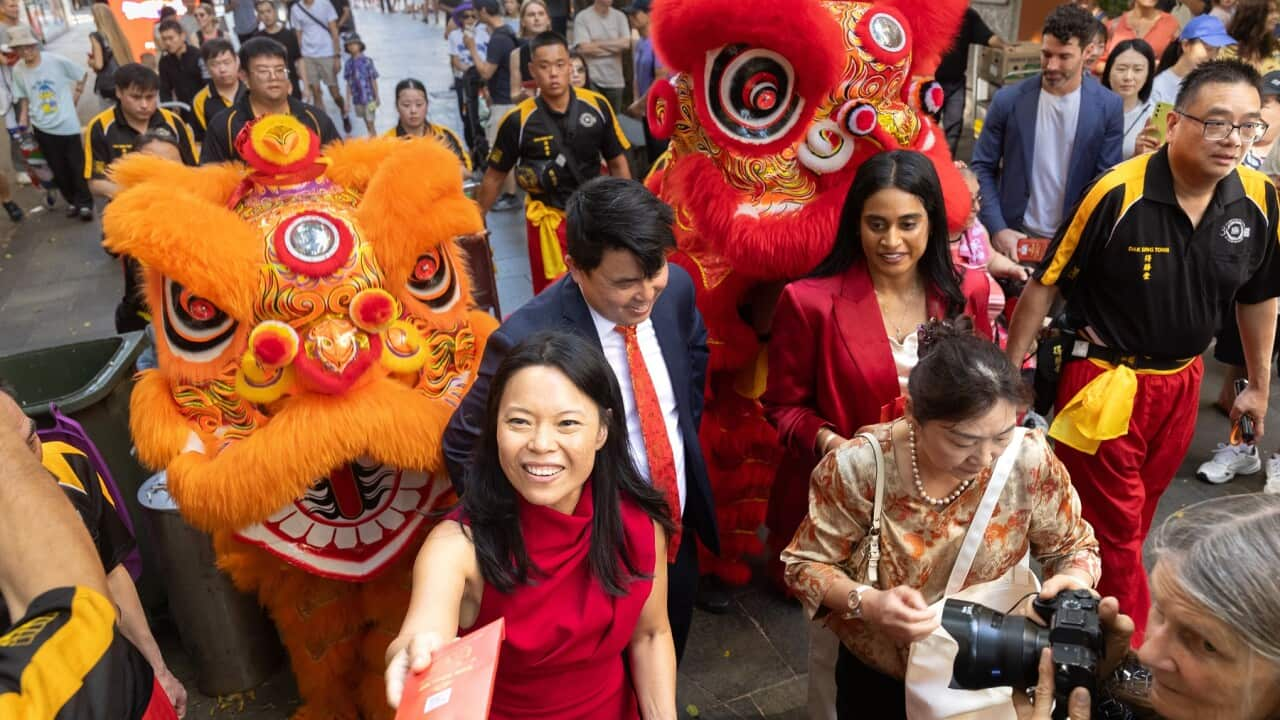Listen to Australian and world news, and follow trending topics with SBS News Podcasts.
Produced in collaboration with SBS Italian, Maltese and Malay.
Former immigration minister Al Grassby tasked Radio Ethnic Australia with the mission to explain Medibank, the first version of Medicare, to migrants in different languages.
As Australia’s most diverse broadcaster, the Special Broadcasting Service aims to inspire all Australians to explore, respect and celebrate our diverse world and in doing so, promote an inclusive and cohesive society.
TRANSCRIPT
(Sound of shows on 2EA and 3EA)
It's the year 1975 and two radio stations, then known as 2EA in Sydney and 3EA in Melbourne, went to air for the first time.
Domenico Gentile has been a journalist with the Italian programme since 1977.
"All of the prime ministers had been our guests, the ministers for immigrations, where regularly our guests, the premiers, the Ethnic Affairs Commission and so on."
He sums up the impact of SBS in one word.
"Immense. Immense. Because we brought together ethnic communities because we didn't create a division with them, but we united them because that was what we had to do. Cohesion."
Joe Axiaq started with the Maltese program in the late 1980s.
"To switch on the radio and all of a sudden you hear your language, and you hear your music, oh that was out of this world."
Bringing audiences a slice of home, SBS has also long been the champion of football.
Gentile explains:
"If you would've gone on air without mentioning football, you would've had a riot outside the station. I can guarantee you that. Football has been our lucky charm."
SBS television launched in 1980. Today, SBS is a multi-platform media organisation with a free-to-air service spanning six channels - as well as its digital offering on SBS On Demand.
This is SBS Managing Director, James Taylor.
"We are Australia's most trusted news service. This is a really important foundation for public broadcasting. We are the podcaster of the year, three years in a row."
SBS has been telling First Nations stories all along - whether on radio or television in news and current affairs.
NITV joined SBS in 2012 - it's first broadcast from Uluru.
This is NITV Presenter and SBS's head of Indigenous News and Current Affairs, Natalie Ahmat.
"Indigenous stories are just so important that we tell them. And this for the first time opened the door to be able to bring broader Australia along the journey with us, particularly multicultural and new Australians who are hungry for these stories and really want to learn more about the First Peoples of the country that they've come to call home."
50 years on, SBS Audio broadcasts in more than 60 languages, chosen on a needs-basis, which is informed by the census.
One of the new additions, SBS Malay, was introduced in 2023. This is SBS Malay's Zaini Ahmad.
"In the past ten years, there has been an influx of younger semi-skilled and non-skilled Malaysian migrants. They really need SBS Malay to navigate their way through their new homeland."
In 2025, SBS holds a unique place in the Australian media landscape.
This is Axiaq again.
"There is this sense of belonging. This is sort of our radio station. This is our program."
And looking to the future, James Taylor indicates a few exciting plans on the horizon.
"Next year, middle of the year, we get to bring the world's largest sporting event to Australians, again, which is the FIFA Men's World Cup. And over the next year we're working on a business case to government to create a production presence and talent incubator in Western Sydney."
On SBS On Demand, a dedicated SBS50 Hub, features all things SBS from across the decades, including powerful SBS and NITV Originals and iconic arthouse films.













